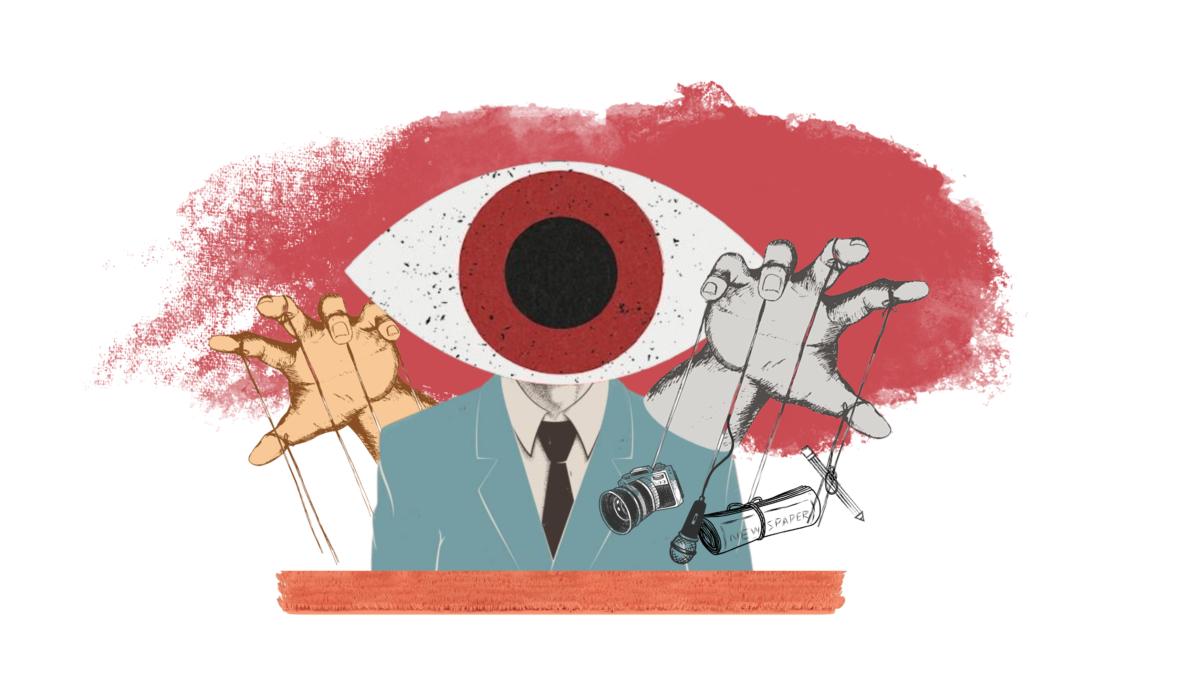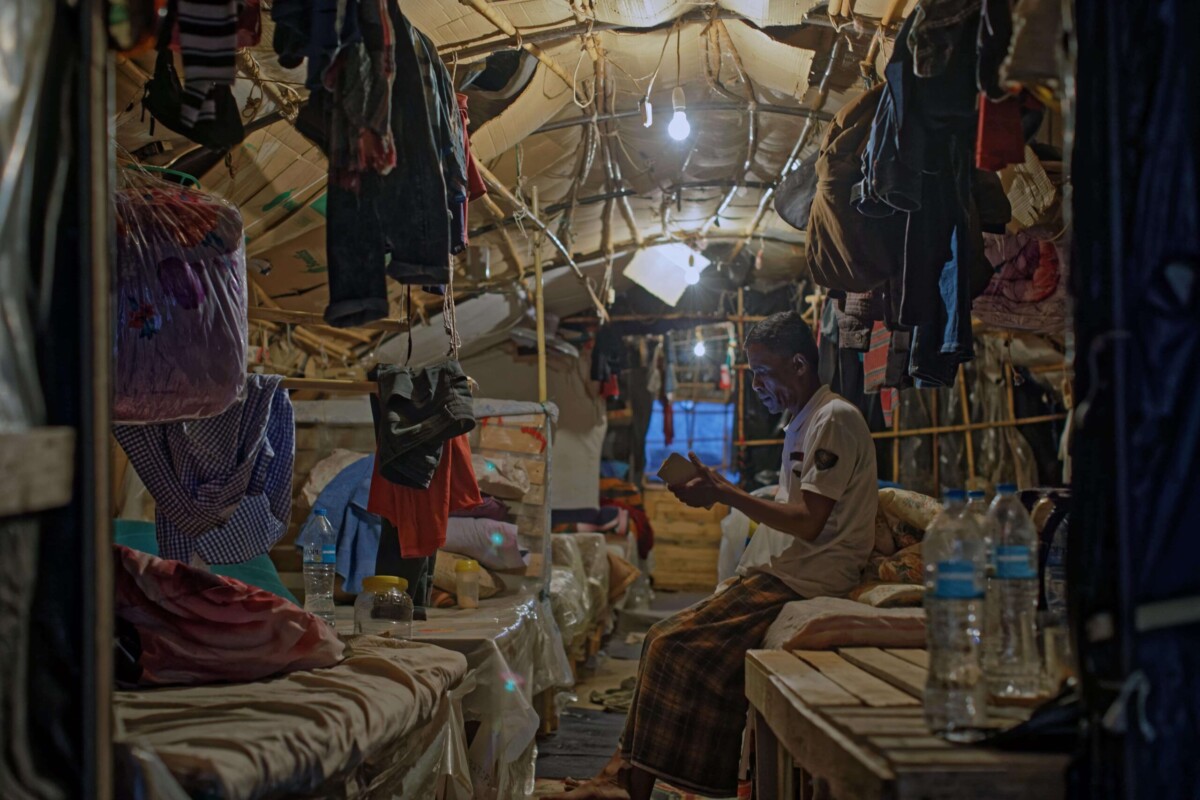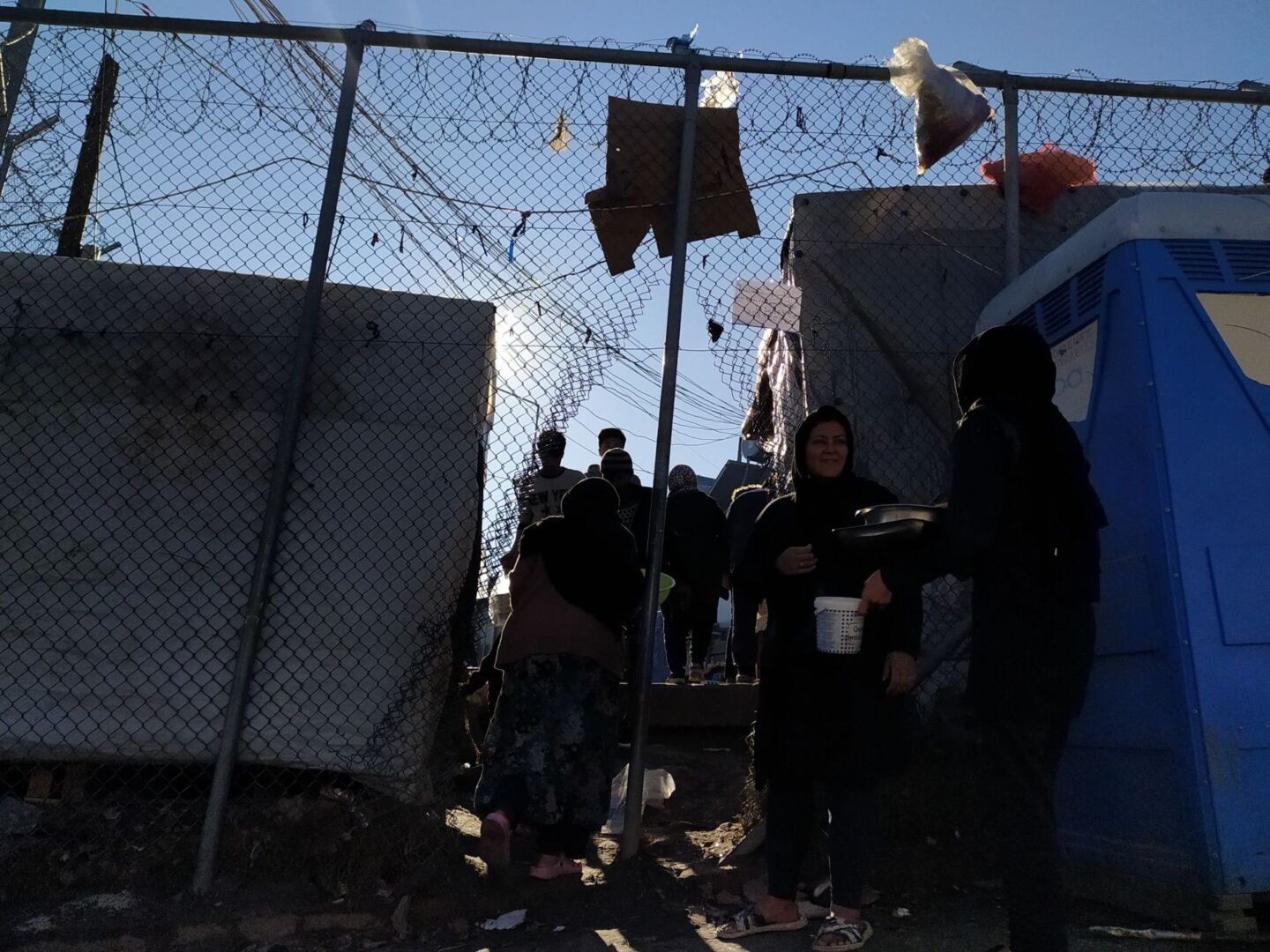Let’s play a game: take a pen or pencil and a piece of paper. I know you won’t do it. But I mean it: take a pen or pencil and a piece of paper.
Do you have them? Let’s say you do. Now think about and write down the 15 companies that you feel most define your daily life, the ones you see around you most on a typical day, perhaps.
I’ll start first: Cosmote (the mobile); Vodafone (the landline); Piraeus Bank (the money); E-food or Wolt (the food); Public and Plaisio (I bump into one of their shops as soon as I leave the house); OPAP (this betting shop I encounter even before Public and Plaisio); Athenian Brewery; Olympic Brewery; Coca-Cola (there’s a good chance that anything I consume at a business meeting or a bar in the evening will be one of their brands); Aegean Airlines; Hellenic Petroleum; Public Power Corporation; Mytilineos; and of course the construction companies ELLAKTOR Group, GEK Terna, and again Mytilineos.
Now consider: when was the last time you saw a TV reportage about these companies? When was the last time you read an investigative report in a major media outlet – about labour contracts, about possible preferential treatment from the state, about any unfair treatment of smaller market players?
It’s probably been a long time. So what’s going on? In Greece, rotten apples are anywhere one might look, but somehow the dominant interests remain unaffected? Do the pathologies we all know about apply only to other companies?
Now write down which of these same companies you have noticed are advertising in major media or even sponsoring the events you have attended.
Doesn’t it all seem a little clearer?
How German e-food understood Greece
In Greece, private media advertising mainly serves one purpose: to create a relationship of dependence. It’s useful to observe how foreign companies adapt to this reality.
In September 2021, there was a backlash against e-food, the German-owned company that delivers pizza, souvlaki or, more recently, groceries to our doorstep. Recently, an unfortunate message that the company had sent to some delivery drivers was leaked. It informed them that they could either continue as freelancers or entirely leave the company. A wave of support for the employees was quickly generated on social networks.
The media generously relayed both the news and the workers’ demands and rallies. The publicity resulted in the company’s satisfaction rating dropping to one star within hours. The layoffs were called off.
Observing the assiduity with which the media continued to cover the issue, I had a question. A source familiar with the management of the company was soon able to solve it for me: no, e-food was not advertised in the Greek media.
As its model focuses on Internet users, who might place an online order while browsing a video on YouTube or keeping up to date with news of their Facebook friends, the company didn’t consider it essential for its commercial development. This partly explained the unprecedented freedom with which outlets railed against it.
Fast-forward one year, and e-food has learned its lesson: it now advertises on major national TV stations. In this way, the company has purchased its own protection contract against the possibility of its future misconduct being broadcast with the same fury.
Positioned 108th in press freedom
In 2022, Greece was ranked 108th out of 180 countries worldwide in the annual Reporters Without Borders (RSF) index. Having fallen 38 places from the previous year, Greece came last in Europe.
Since the announcement of this year’s index score, Greece has been living in a peculiar situation. Part of the opposition is acting as if the situation is unprecedented – as if, until last year, the word “Greece” was considered synonymous with “freedom of the press”. Meanwhile the government has entirely disparaged not only the report but also the organisation that authors it.
Playing on domestic reflexes (NGOs rank last in the indicators of citizens’ trust), the government refers pejoratively to Reporters Without Borders (RSF) as “an NGO”. The prime minister branded the report as “crap”.
In fact, RSF’s legal status as a non-profit organisation says at least as much about the quality of their annual report, which is taken seriously across the world, than the fact that they have, for example, received an award from the European Parliament.
The domestic dismissal of the ranking has focused instead on the African countries placed above Greece. How can it even be possible that Greece is doing worse than them?
During a conference in Athens a few weeks ago, convened by the non-profit journalism body iMedD, Pavol Szalai, head of the EU and Balkans desk, gave an answer that was applauded by the audience. He said that we finally “have to get over the perception that African countries cannot do better than European countries in press freedom”.
Szalai explained that Greece nowadays concentrates all the issues encountered elsewhere in Europe. “There is only one country in which recently a journalist was assassinated, journalists are under arbitrary surveillance, there are many SLAPP cases, police violence, attacks on journalists and harassment of journalists covering migration, lack of independence of the public media – and I could continue with this long list,” he said.
Press-freedom NGOs (besides RSF), as well as MEPs, have been insisting that the murder of Giorgos Karaivaz [an investigative journalist specialised in criminal cases murdered on 9 April 2021 at his place, in Athens] be solved. This should be the first goal of the government if it really wants to improve the country’s image abroad. But a year and a half have passed and, despite initial announcements, no progress whatsoever has been made.
The first impact of an unprecedented event, such as the killing of the police reporter in broad daylight, is to raise the prospect that it could happen again.
If there is no sign of any effort to solve the murder of a prominent journalist – someone that residents of the most isolated Greek village would have known, due to his daily presence on TV – what might we expect if anything happened to one of the rest of us?
A cover-up of spying on journalists
In November 2021, a frontpage story on the daily Efimerida ton Sintakton revealed that I was under surveillance by the National Intelligence Service (EYP) while reporting for Solomon.
We still don’t know the reason for the surveillance. It was initially dismissed by the government, and then months later attributed to “national security” (a motive for surveilling at least 15,000 other citizens annually).
But the leaked document shows that the intelligence services were also interested in a report we were preparing on a 12-year-old Syrian refugee boy who was detained in a facility in Kos.
The revelation of the surveillance was followed by a statement from ESIEA, the journalists’ union, as well as from the Foreign Press Association and international journalists’ bodies. There were questions to the European Parliament, and articles published in reputable international media outlets.
As the case began to become known, with my colleagues at Solomon we made a deal. We would not rush to talk about it in any left-wing or opposition media, those that were bound to express interest either on principle or expediency. In this way we would not deprive other publications of the opportunity to highlight an issue that threatens constitutionally guaranteed freedoms.
We are still waiting.
News websites in Greece employ journalists who might be required to post twenty-five different news items in a working day. But nowhere was it considered important for an employee to spend ten minutes writing a 100-word news story based on the announcement of our representative body – simply to report on a fellow colleague being spied on by the country’s secret services.
The media’s power to completely silence an event is enormous. For its readers, the event never happened.
This power became even more apparent in the case of Thanasis Koukakis. An esteemed financial reporter investigating banking scandals for Greek and foreign media such as the Financial Times, Koukakis was proved to have been spied on both by EYP and the Predator malware. Meanwhile, the government changed decades-standing legislation just so that he would not be informed about his case.
Despite the evidence presented, coverage was again sparse. Very few media outlets reported the news of the surveillance of a colleague, a man well-known to their staff.
Investigative journalist Eliza Triantafyllou of Inside Story, one of the two media outlets (along with Reporters United) that for over six months were left alone in exposing the scandal now known as PredatorGate, makes a very apt observation.
She says that the domestic media were forced to acknowledge (and inform their audience) that there was indeed an issue when the case of Nikos Androulakis, a Greek Socialist party MP whose phone was bugged by the secret services, came up. After all, how can you cover up the spying on an elected MEP, the leader of Greece’s third largest Party?
The role of the AMNA
In Greece, for a news story to have a chance of reaching the wider public, it must be broadcast by the Athens-Macedonian News Agency (AMNA), the only state-owned news agency.
The business model of hundreds of websites around the country is based on the reproduction of the AMNA alerts, with little or often no content of their own. Perhaps as many as eight out of ten news stories read on the internet each day come from AMNA.
One of the first actions of Prime Minister Kyriakos Mitsotakis, immediately after his election in July 2019, was to take over EYP, AMNA, and the public broadcaster ERT.
His decision to take the EYP under his control is controversial, since the list of journalists, politicians and other figures who have allegedly been under surveillance is only getting longer. But the prime minister’s decision to take ERT and AMNA under direct control is arguably a leap too far. After all, both these institutions have always served the purposes of governments before that of the public funding them.
That is still the case today.
As months-long, well-documented investigations on the Greek pushbacks of asylum-seekers were published by foreign media such as the Guardian and Le Monde, AMNA maintained silence. It does not take the same attitude when the same outlets publish short articles praising the beaches of a Greek island – these are often grounds for an alert that is then republished on hundreds of websites.
An example that highlights this unique ability of the state agency to make events go unreported – and therefore effectively not to have happened – is presented by the prime minister’s interview with Washington Post reporter Lally Weymouth.
When AMNA translated and republished the interview, the only parts missing were those where the journalist had called on Kyriakos Mitsotakis to roll back a problematic anti-fake-news law his government had brought in.
Greek readers never learned this had happened, although Kyriakos Mitsotakis did later admit that this was a law that the government had misjudged.
But, the most enlightening example of AMNA’s role brings us again to Reporters Without Borders and the coverage of their annual index by the state agency. Arguably it takes real effort to report on the ranking without mentioning that Greece was now last in Europe – especially if one is reporting inside Greece.
But the editors of AMNA did just that. Its readers were informed about the problematic state of press freedom in countries such as Russia and China – but heard no reference whatsoever to their own country.
To have no data is to misserve democracy
In the winter of 2019, some 2,500 unaccompanied minor refugees were trapped in squalid living conditions in Greece. The then minister of civil protection, Michalis Chrysochoidis, sent a letter to his European counterparts, proposing a plan to relocate them according to the size of each country.
The Greek minister’s plan fell upon the indifference of other governments. But what is really at issue here is the content of the letter and the effect it had.
Investigate Europe, a pan-European group of journalists, requested the letter from the 28 European governments. Exactly half of them responded. Although communication on the matter might be in the interests of Greece, Greek authorities refused to release the letter or to share what it contained.
In terms of administrative approach, Finland, for example, was exactly the opposite. The letter was not only forwarded, but the email was signed by a young woman who was doing her internship in the responding ministry.
In Greece, access to public data is a huge ongoing obstacle. Agencies and government departments have always treated it almost as their personal secrets. We, journalists who cooperate in cross-border investigations, must constantly convince our colleagues that it is not because we are lazy that we cannot gain access to the data they routinely retrieve (often even within the same day!) in their own countries.
Outside Greece the boom in data journalism has been ongoing for years. Sometimes entire teams specialise in requests for access to public information (FOIAs). It is telling that in Greece no major media outlet has such a department. After all, it would be useless.
“No problem in Greece”
These issues do not concern the current government alone.
But only a government can provide a framework in which journalists do not self-censor because they know a story will displease the owner of the media they work for or the advertisers. Only a government can lay the foundations so that big interests are not untouchable, and create a state media that serves public information and not the government’s image.
And only a government can pass legislation to protect whistleblowers when it is in the public interest. Although such a European directive exists, Greece still refuses to translate it into national law.
The government continues to repeat that “there is no problem with freedom of the press in Greece”, pointing out that press freedom is enshrined in the Constitution. It refuses to acknowledge that these issues exist.
In refusing to address them, the government deprives citizens of the right to live free from them. After all, press freedom is much more effectively suppressed when there is no need for bloodshed, when there are no tensions – when journalists simply know that there are stories, issues, whole areas of coverage, that “you simply don’t touch.”




